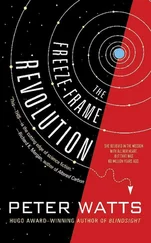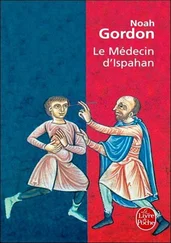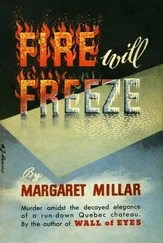Leah Giarratano - Vodka doesn't freeze
Здесь есть возможность читать онлайн «Leah Giarratano - Vodka doesn't freeze» весь текст электронной книги совершенно бесплатно (целиком полную версию без сокращений). В некоторых случаях можно слушать аудио, скачать через торрент в формате fb2 и присутствует краткое содержание. Жанр: Полицейский детектив, на английском языке. Описание произведения, (предисловие) а так же отзывы посетителей доступны на портале библиотеки ЛибКат.
- Название:Vodka doesn't freeze
- Автор:
- Жанр:
- Год:неизвестен
- ISBN:нет данных
- Рейтинг книги:4 / 5. Голосов: 1
-
Избранное:Добавить в избранное
- Отзывы:
-
Ваша оценка:
- 80
- 1
- 2
- 3
- 4
- 5
Vodka doesn't freeze: краткое содержание, описание и аннотация
Предлагаем к чтению аннотацию, описание, краткое содержание или предисловие (зависит от того, что написал сам автор книги «Vodka doesn't freeze»). Если вы не нашли необходимую информацию о книге — напишите в комментариях, мы постараемся отыскать её.
Vodka doesn't freeze — читать онлайн бесплатно полную книгу (весь текст) целиком
Ниже представлен текст книги, разбитый по страницам. Система сохранения места последней прочитанной страницы, позволяет с удобством читать онлайн бесплатно книгу «Vodka doesn't freeze», без необходимости каждый раз заново искать на чём Вы остановились. Поставьте закладку, и сможете в любой момент перейти на страницу, на которой закончили чтение.
Интервал:
Закладка:
Rose seemed hesitant, somewhat puzzled, but was eventually won over. She wanted the job, and when Wayne arrived, alone and apologetic, bearing chocolate mud cake with Rohypnol-laced icing, she let him in.
Wayne made sure she had the biggest slice, and fifteen minutes later, with Mummy sound asleep with her face in the cake, he went to play birthday parties with the five-year-old.
8
Carole Dean had finally hung up. Standing at the base of her winding gravel driveway, still in her pyjamas, Mercy dropped the phone handset into her dressing-gown pocket. She should've let the call go to the answering machine. When she'd realised it was Carole on the line, she'd resignedly taken the phone and her cigarettes out the front door. At least she could distract herself with the sky and trees as she reassured Carole that she was fine.
Mercy had been proud of her saccharine chatter throughout the call. She'd worked with this woman for years, and knew that Carole would never back off if Mercy couldn't convince her that yesterday had been an anomaly, that she just needed a good rest.
Wrapping her gown closer around her body, Mercy went back inside and looked around guardedly, almost as though she expected to see something unusual there. As it happened, this was not an ordinary house. Perched on the precipice of a cliff dropping to a deep ravine in the Blue Mountains, almost the entire back wall of the split-level house was glass. The effect was of living in the sky above a vast bush canyon; indeed, at the moment, clouds on the balcony whorled insistently as though indignant at being denied entry. Two galahs scratched at the jarrah decking, calling occasionally for more seed to be scattered.
It was always at least ten degrees cooler at Mercy's home than anywhere else in Sydney, and she shivered slightly as she stepped down to her sunken lounge, reaching automatically for the remote to play some music. She nudged the volume lower and the Japanese harps soothed her somewhat.
What the hell was happening to her? She stared down at her bandaged hand, fascinated by the white gauze marked by the bloom of red blood.
Her clinical supervisor, Dr Noah Griffen, had been warning her for months that she was taking on too many abuse cases, that she was at risk of burning out. She'd listened impatiently, resentful at having to spend more time at the hospital to attend these sessions. Regular clinical supervision was a requirement of her employment, though, and if she missed more than six of the weekly sessions in a year she had to answer to the Clinical Director.
She had been attending supervision with Griffen for ten years now, and had, in fact, decided to consult at the Sisters of Charity Hospital because of her mentor's practice there, but she'd grown increasingly intolerant of his admonitions to reduce her caseload. It wasn't like he wasn't doing the same kind of work.
Mercy's expertise with survivors of childhood sexual abuse had led to a lengthy waiting list for her services, and she felt unable to turn down the individuals who sought her help. But as the years had passed working with this population, she found herself in tears more often than not as they told their stories. She was increasingly unable to stop her imagination from conjuring images of the abuse they had endured, which would vie for space with memories of the beatings from her own childhood. A flame of hatred for the offenders was stoked with each new tale of suffering.
One sleepless night, after speaking with an eighteen-yearold girl slowly dying of anorexia nervosa, she had realised that this patient's file was still in her bag. Snapping on her bedside light, she had pulled the thick hospital folder onto her bed, hoping to find something within its contents that could help her with this young woman.
The girl had been repeatedly hospitalised since she was twelve, when she had tried to kill herself by taking every tablet in her home, washed down with disinfectant from the laundry cupboard. It wasn't until the year before, however, that she'd disclosed that her father had been selling her to his mates for beer for as long as she could remember. Although she'd now made a police statement against him, the DPP was still struggling to gather sufficient evidence to bring him to trial. In the meantime, this man was at home while his daughter fought for her life in hospital.
Impotent rage engulfed Mercy as she flicked through the file. Suddenly something snagged at her consciousness, and she stopped. She turned back a page, then another. There. An address. The father's address. The place where he was probably even now sleeping drunkenly while his daughter was nourished through a nasogastric tube.
It wasn't far from here, actually. Windsor. She felt a thrill of surprise that she could drive to the house of a monster right now and knock on his door. She could see what such a man would look like, could speak to him; throw a brick through his window if she wanted to. She could tell this man what he had done to his child. Make him listen. Sit him down and force-feed him tales of the horror that she listened to every day. He wouldn't care; she knew that. He'd rationalise his way through what she was saying; he'd call the police, make her out to be the crazy one. He'd get away with it. They always did.
Windsor. She had his address. It had not been difficult to access the identities of her victims' attackers once she'd started looking. In the past, Mercy had skipped these people's names when she came across them. They had no meaning for her; they did not help her to assist her patients.
When she decided to pay attention, however, Mercy found it surprisingly easy to gather facts about the offenders. They were identified in police statements, court documents, Apprehended Violence Orders – many of these documents were in her patients' files. Often the perpetrators' addresses were right there, their pseudonyms, sometimes even the names of other accusers. Sometimes officials had gone through and blacked out such details, but this would most often happen with one document and not another. Mercy soon had profiles on several men.
She began to work on these files late at night, also incorporating information she'd gleaned from her patients during therapy. She'd found herself specifically asking questions during the sessions that would fill holes in her knowledge about the offenders. She'd jot the missing details in her work notes, and then transfer them to her offender files when she got home.
Mercy began to notice patterns. Carly Kaplan had said that her abuser had made her dress as a fairy and a princess. He'd made Carly and her friend Brianna touch each other, and had taken photographs. Kathy Lin, another patient, had been abused by her father, but one evening he'd entertained a friend who'd also had Kathy and her sister dress as princesses while he photographed them. Kathy's description of this man – when Mercy had asked during their last session – had been very similar to the one given of the offender in Carly's police statement.
Then there was John Jacobs. One of Mercy's most damaged patients, he was able to work on memories of his abuse maybe only once or twice a year. Otherwise he spent months on the acute psychosis ward of the hospital while doctors tried to stabilise his medication. Both of his arms, from fingertips to shoulders, were a mutilated mess. He would carve and burn them, trying to release the demons he believed lived inside his body. He'd also mutilated his genitals, sure that the devil had control of his sex organs, and once, after stabbing himself in the stomach to punish himself for becoming sexually aroused, emergency surgery had been necessary to save him from dying.
John's file told a harrowing story. Removed from his parents as a mute and unresponsive toddler, bruises covering his body, he'd been placed in a group home. Made a ward of the state because of his parents' neglect, he was eligible to be adopted, but staff waited until they could determine whether he would improve and what legacies he might have been left with. His DoCS case notes indicated he'd rapidly responded to care and attention, learning to talk and walk, and endearing himself to staff. He'd been adopted by a family who already had two sons, and no significant entries were made in the file for several years. At age ten, he'd been temporarily returned to the care of the state. His adoptive parents had complained that he was aggressive, wouldn't shower, and was non-compliant. One caseworker had labelled the adoptive father as 'controlling' and 'aggressive'. Another had said that John was 'attention-seeking' and had 'deliberately sabotaged his placement' because of 'an inferiority complex'. The same writer had noted and dismissed John's claims that his adoptive father had molested him.
Читать дальшеИнтервал:
Закладка:
Похожие книги на «Vodka doesn't freeze»
Представляем Вашему вниманию похожие книги на «Vodka doesn't freeze» списком для выбора. Мы отобрали схожую по названию и смыслу литературу в надежде предоставить читателям больше вариантов отыскать новые, интересные, ещё непрочитанные произведения.
Обсуждение, отзывы о книге «Vodka doesn't freeze» и просто собственные мнения читателей. Оставьте ваши комментарии, напишите, что Вы думаете о произведении, его смысле или главных героях. Укажите что конкретно понравилось, а что нет, и почему Вы так считаете.












